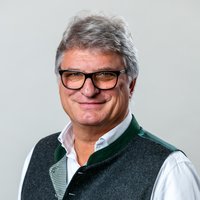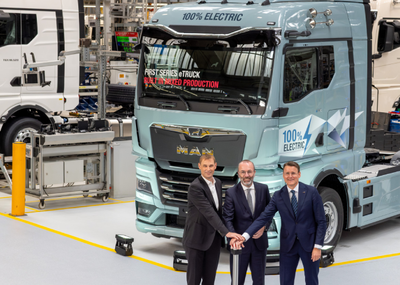Around 400 professionals and decision-makers from across the German foundry sector recently gathered in Aachen for the German Foundry Day 2025. Organized under the leadership of BDGuss – with Dr. Sebastian Tewes, President Clemens Küpper, Managing Director Max Schumacher, and moderator Martin Vogt – the event delivered a program that directly addressed the pressing challenges facing the industry.
Because the situation is serious: rising energy and raw material costs, geopolitical uncertainty, and an acute shortage of skilled labor are putting massive pressure on foundries. Now is the time for sound political and business decisions to secure the future of the foundry industry in Germany. Over two days, the conference delivered a firework of industrial policy insights and began with a keynote by renowned economist Prof. Jens Südekum, who concisely outlined the current macroeconomic realities.
Key Takeaways from Prof. Südekum’s Analysis
1. Deindustrialization Is Accelerating
- Germany is currently losing around 10,000 industrial jobs per month – significantly more than just a few months ago.
- What used to be a slow structural change is now evolving into a full-blown location crisis.
- At the same time, new jobs are emerging in healthcare and social services – important roles, but lower-paying and lower in economic value than traditional industrial jobs.
2. Industry Supports Regional Economies – Especially SMEs
- Particularly in small and medium-sized foundries, industrial jobs are the backbone of many rural areas.
- They create high-skilled employment, support regional supply chains, and ensure social and economic stability.
- When industrial hubs vanish, the entire local ecosystem suffers – from tradespeople to restaurants, from logistics to sports clubs.
3. The Main Challenges: Energy, Markets, Skilled Labor
Energy Prices: Still a Competitive Disadvantage
- Although energy prices have eased somewhat since 2022:
- Electricity in Germany remains too expensive, especially compared to the U.S. or China.
- Grid fees and generation costs continue to be a major burden, acting as a barrier to investment.
- There’s no long-term certainty on electricity prices – hindering efforts to electrify operations (e.g., melting).
Market Risks: China and the U.S. as Wild Cards
- China is flooding global markets with state-subsidized overcapacity, especially in the automotive sector – undermining German core industries.
- The U.S., under Trump, is shifting to a more protectionist trade agenda, reintroducing tariffs and creating export uncertainty.
- Foundries dependent on automotive and mechanical engineering are directly affected by these geopolitical tensions.
Skilled Labor Shortage and Generational Change
- There’s a shortage of foundry mechanics, supervisors, and engineers – especially in SMEs.
- The “boomer generation” is retiring, and new talent must be onboarded and empowered more quickly, including through digital tools.
- This calls for better training, digital assistance systems, and more attractive working conditions, even in traditional production settings.
4. What Is the Government Planning – And What Does It Mean for Foundries?
Energy Policy Measures Under Discussion (As of June 2025):
- Reduction in electricity tax – symbolically relevant, but limited in real impact.
- Capping grid fees – highly relevant, especially for medium-sized industrial users.
- Industrial electricity price – politically desired, but legally challenging under EU state aid law.
→ The goal: to provide long-term price stability for companies investing in electrification, CO₂ reduction, and automation.
Berlin’s Investment Offensive
- New special funds and fiscal reforms provide room for state investments.
- Planned investment focus: infrastructure, digitization, and industrial modernization – including support for production.
- The funding landscape will change – and SMEs, especially foundries, must be ready to actively seize these opportunities.
5. What Matters Now for SMEs and Foundries
Think Energy and Digitalization Together
- Production must become more energy-efficient and digitally supported – this requires price clarity and investment confidence.
- AI-powered assistance systems, such as those from the ReGAIn project, can help retain knowledge and onboard new employees faster – even in small foundries.
Attract and Retain Skilled Workers
- The next generation has new expectations: modern equipment, training opportunities, family-friendliness, and job security.
- Upskill career changers quickly, using practical tools like the Foundry Compass 4.0 learning platform.
Tap Into New Markets
- Germany can no longer rely solely on China or the U.S.
→ There is growth potential in India, Latin America, Canada, Australia, and more.
→ Also important: strengthen intra-European demand and expand the EU internal market.
Help Shape Policy
- SMEs and foundries must speak up:
- For fair electricity prices
- For technology-neutral funding
- For realistic transition timelines under new climate regulations
- For faster permitting and planning procedures
Conclusion: SMEs Need Reliability – Now
The pressure is real, but the opportunities are too.
What foundries need most right now: predictable energy prices, reduced bureaucracy, access to talent, and meaningful investment support.
The policy tools are there – but they must now reach the Mittelstand.
About Prof. Dr. Jens Südekum
Prof. Dr. Jens Südekum is one of Germany’s leading economists – and his keynote rightly opened the 2025 German Foundry Day:
- Professor of International Economics at the Düsseldorf Institute for Competition Economics (DICE), Heinrich Heine University.
- Advisor to the Federal Ministry of Finance since June 2025 – supporting on globalization, structural change, and economic policy.
- Member of key economic research bodies (CEPR, CESifo, IAB, IZA), and widely published in journals such as the American Economic Review and Journal of Urban Economics.
- His research focuses on: international trade, technological change, labor market impacts, and regional economic development – highly relevant for industry-facing sectors like foundries.
With this expertise, Prof. Südekum provided a strong analytical framework for the industrial and economic debates that followed.








